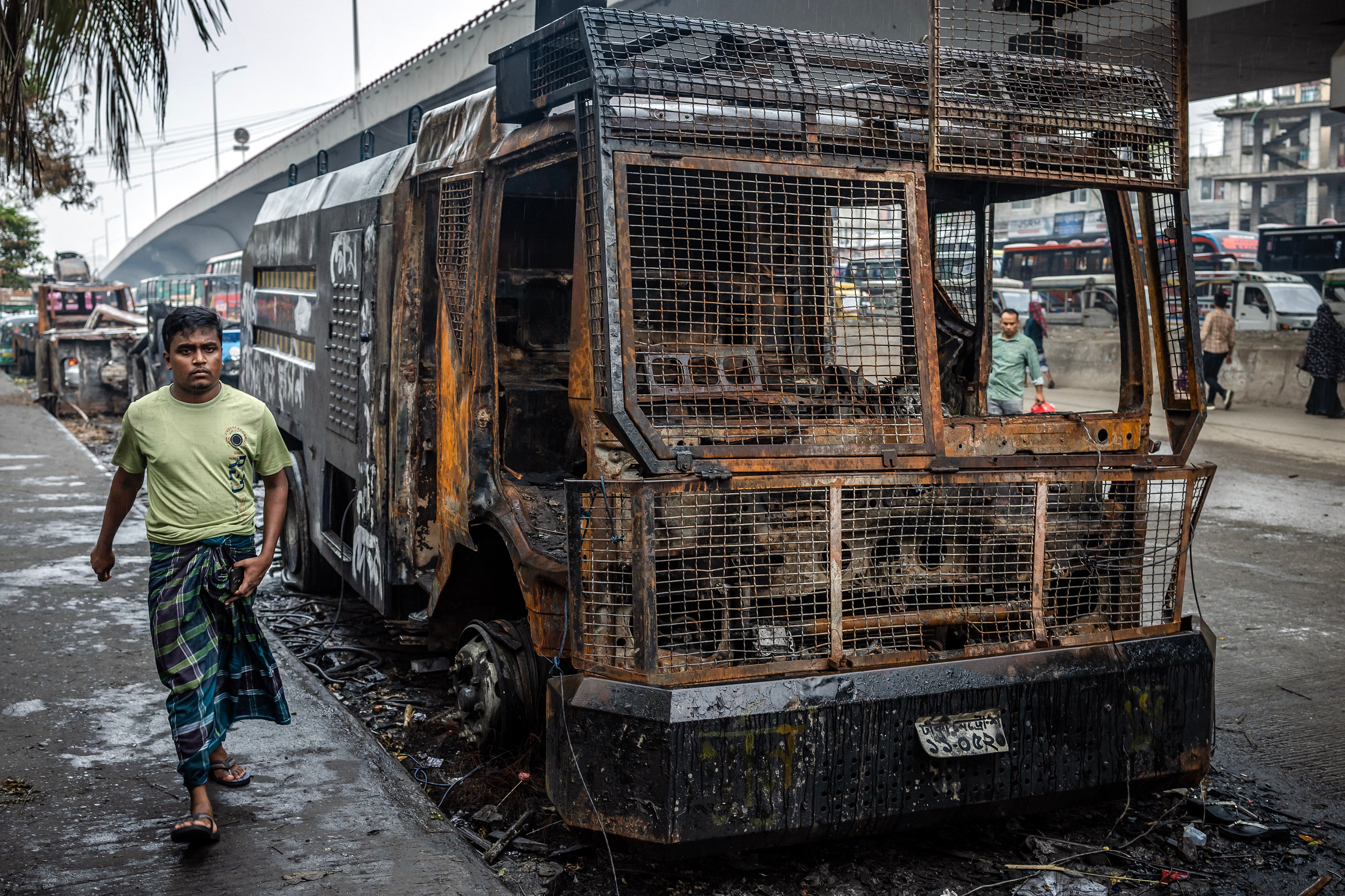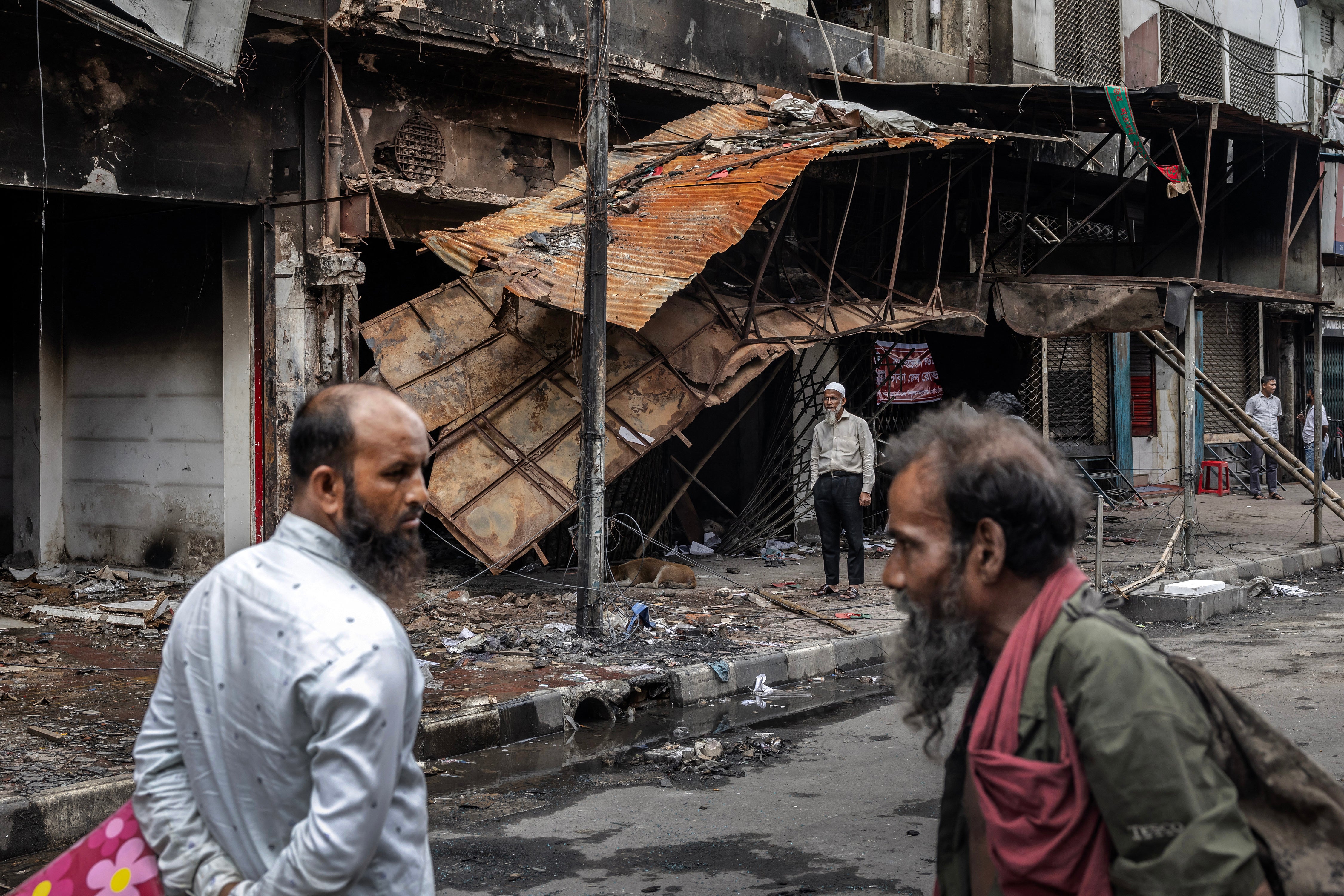Interim leader Muhammad Yunus says Bangladesh is a mess but at least ‘the monster is gone’
Yunus says his first priority is restoring law and order in country riven with violence
Bangladesh’s interim leader Muhammad Yunus has declared that his first priority is to secure law and order after former prime minister Sheikh Hasina left the country in a “complete mess”.
The Nobel laureate economist is the face of the south Asian country’s new leadership, having taken over as chief adviser of the interim government after a street agitation forced Ms Hasina, who ruled with an iron fist for 15 years, to flee to India.
Mr Yunus has described the agitation, driven by students, as a “revolution”.
“Law and order is the first priority so that people can sit down or get to work,” the new leader said in a briefing in the capital Dhaka.
He also promised to oversee broader reforms such as strengthening the freedom of speech after years of near authoritarian rule which was “a mess, complete mess”.
“Even the government, what they did, whatever they did, just simply doesn’t make sense to me,” he said. “They didn’t have any idea what administration is all about.”
But now there is hope, he claimed. “We are a fresh new face for them, for the country,” Mr Yunus said. "Finally, this moment, the monster is gone.”

Almost 500 people have been killed in violent protests that began as a demand to roll back a contentious jobs quota and soon turned into an anti-government agitation.
As Ms Hasina fled on a military helicopter earlier this month, law and order collapsed. To make the situation worse, police officers went on a strike in protest against the killing of over a dozen of their comrades during the violence.

This past weekend, leaders of the agitation demanded the resignation of Supreme Court chief justice Obaidul Hassan. He quickly resigned along with five other judges of the top court.
Mr Yunus outlined ensuring “independence of the judiciary” as another of his priorities. He said the previous system was not and acted at the behest of “some superior authority”.
“In technical terms, he was the chief justice,” the new leader said, referring to Mr Hassan. “But actually he was just a hangman.”
Mr Yunus faced a legal crackdown during Hasina’s rule after he was charged in a number of cases that his supporters denounced as “politically motivated vendetta”.
He was convicted earlier this year for violating the country’s labour law and sentenced to six months in jail. He was released on bail, however, and, recently just before taking over as the new leader, acquitted of the charges.
Ms Hasina claimed her ouster was engineered by the US, which was furious with her for refusing to hand over control of Saint Martin island in the Bay of Bengal, the Economic Times reported.
Washington has denied the allegation.
"We have had no involvement at all. Any reports or rumours that the United States government was involved in these events is simply false," White House spokesperson Karine Jean-Pierre said at a press briefing on Monday.
Subscribe to Independent Premium to bookmark this article
Want to bookmark your favourite articles and stories to read or reference later? Start your Independent Premium subscription today.


Join our commenting forum
Join thought-provoking conversations, follow other Independent readers and see their replies
Comments